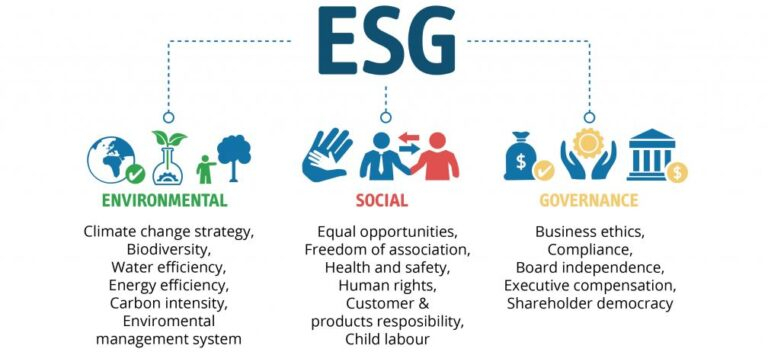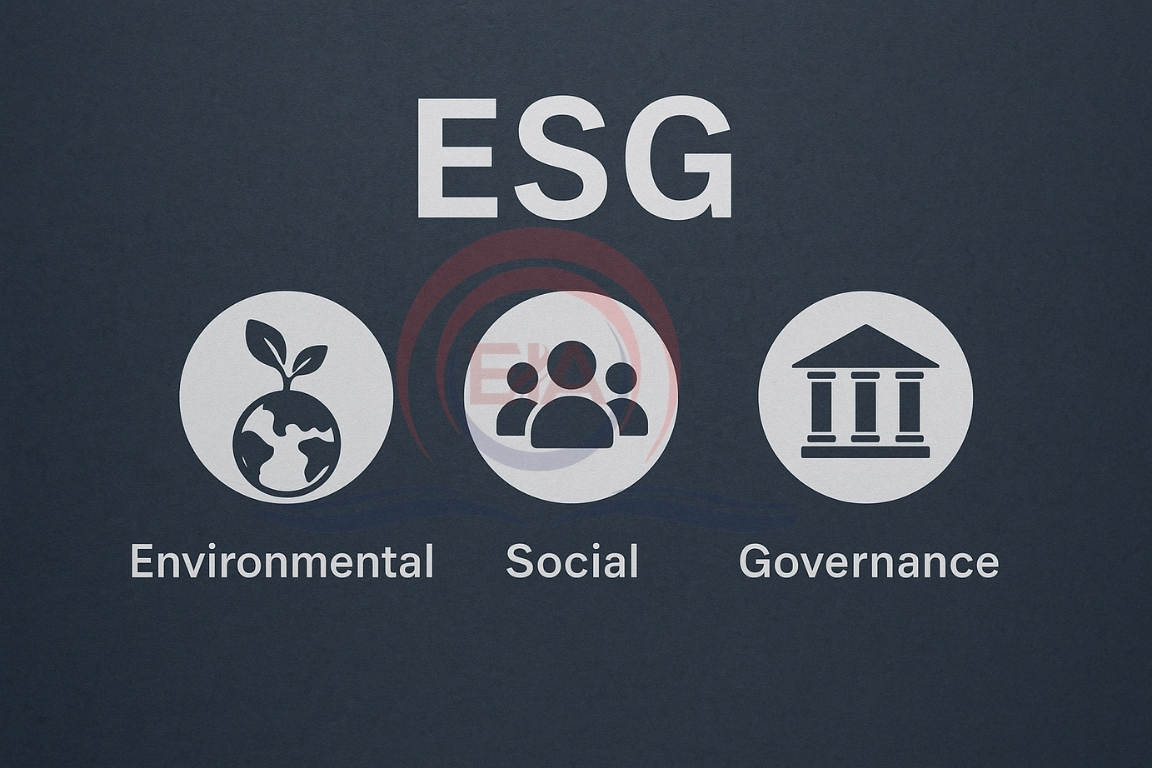A Parliamentary committee has suggested setting up a separate regulatory body for ESG compliance under the Ministry of Corporate Affairs. The panel stressed the need for better monitoring and prevention of greenwashing by companies.
What is ESG?
- ESG stands for Environmental, Social, and Governance.
- It is a non-financial framework that helps measure a company’s impact on the planet, people, and ethical business conduct.
- ESG is now a key factor for investors, consumers, and regulators when assessing businesses.
Components of ESG
- Environmental: Examines how a company affects nature. Examples: carbon emissions, water use, pollution control, waste management.
- Social: Focuses on how a company treats people. Includes: employee welfare, human rights, diversity, community relations.
- Governance: Refers to internal rules and company leadership. Covers: transparency, board independence, anti-corruption measures, ethical conduct.

Key Suggestions by the Parliamentary Panel Creation of a Dedicated ESG Body
- A new regulatory authority should be set up under the Ministry of Corporate Affairs (MCA).
- It should: Have forensic investigation skills to detect greenwashing (false environmental claims). Create sector-wise ESG guidelines for companies to follow.
Stronger Legal Backing
- Existing rules under the Companies Act, 2013 (Section 166(2)) are too general.
- A more detailed legal structure is needed to ensure companies honestly report their ESG efforts.
Support for MSMEs
- The proposed body should offer guidance and support to Micro, Small, and Medium Enterprises (MSMEs).
- MSMEs often lack resources and awareness to meet ESG requirements.
Other ESG-Related Measures in India
- CSR Mandate (Companies Act, 2013): Some companies must spend at least 2% of average profits on Corporate Social Responsibility (CSR) activities.
- BRSR by SEBI: The top 1,000 listed companies must submit a Business Responsibility and Sustainability Report (BRSR) with ESG disclosures.
- Global Alignment: India is working to align its ESG policies with international standards, such as the EU ESG norms and the International Sustainability Standards Board (ISSB) guidelines.
Conclusion:
ESG has become essential for sustainable business practices.
India is now focusing on regulation and accountability to ensure companies make a real, not just cosmetic, commitment to ESG values.





